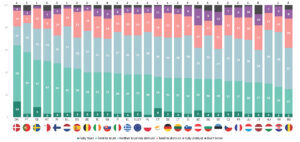Introduction
Artificial Intelligence (AI) is revolutionising the healthcare and pharmaceutical industries. From enhancing patient care to optimising drug development and automating complex validation processes, AI holds the promise of greater efficiency, improved outcomes, and cost reduction.
However, the rapid deployment of AI also raises important ethical, regulatory, and practical questions. As the sector evolves, a thoughtful, transparent, and patient-centred approach is essential to ensure that AI fulfils its potential without compromising public trust or safety.
Ethical and Responsible AI in Healthcare
AI in healthcare offers significant benefits in diagnostics, treatment personalisation, and operational efficiency. Yet, ethical challenges such as algorithmic bias, patient privacy, and opaque decision-making must be addressed. For instance, AI systems trained on non-representative data (datasets lacking e.g. racial, gender, or socioeconomic diversity) may misdiagnose or overlook conditions in underrepresented populations.
Conversely, when implemented thoughtfully, AI can significantly improve diagnostics by rapidly analysing medical images to detect early signs of diseases like cancer or diabetic retinopathy with high accuracy. In treatment personalisation, AI can use genomic data, lifestyle factors, and electronic health records to tailor therapies to individual patients, improving efficacy and minimising adverse effects. Operationally, AI streamlines scheduling, resource allocation, and patient triage, which enhances system efficiency and reduces wait times.
Global regulatory frameworks are evolving to keep pace with AI’s rapid advancement. The EU’s AI Act places strong emphasis on human oversight, transparency, and robust data governance, while the U.S. approach tends to be more flexible and innovation driven. This regulatory diversity can create challenges for developers and healthcare providers working across borders, underscoring the need for clear, trustworthy practices.
At the heart of these efforts lies the crucial task of building public trust. A 2023 EU-wide study on AI attitudes showed that while many citizens view AI positively, overall awareness and understanding remain limited. Supporting this, a 2021 Statista survey found that 69% of EU respondents would trust AI-generated healthcare decisions if combined with expert human judgment, yet only 25% would place full trust in AI alone. These insights highlight that transparency, ethical AI development, and meaningful human oversight are essential to fostering confidence in AI-powered healthcare.

Strengthening Patient-Provider Relationships with AI
Building on this foundation of trust and ethical responsibility, AI technologies also have the potential to enhance the quality of interactions between patients and healthcare providers. Natural language processing tools and large language models (LLMs) help translate complex medical terminology into patient-friendly language, improving health literacy and decision-making.
AI-enabled ambient clinical intelligence tools can document patient interactions in real time, freeing clinicians from administrative burdens and enabling more personal engagement. These innovations foster deeper trust and better health outcomes.
Generative AI in Drug Development
Generative AI (Gen AI) is a specialised branch of artificial intelligence that focuses on creating new content—whether text, images, or data—based on patterns learned from existing datasets. Unlike traditional AI, which primarily analyses or classifies data, generative AI can produce novel outputs such as new molecular structures, scientific hypotheses, or regulatory documents.
In the pharmaceutical sector, generative AI is transforming drug development by accelerating research and reducing human error. Companies use Gen AI to analyse and generate structured documents such as standard operating procedures (SOPs), clinical protocols, and regulatory filings. Moreover, Gen AI models assist in designing novel drug candidates by predicting molecular properties and simulating potential interactions, thereby shortening discovery timelines.
AI in Pharmaceutical Validation (CQV Processes)
In pharmaceutical manufacturing, AI is becoming indispensable in Commissioning, Qualification, and Validation (CQV) processes by seamlessly integrating with digital validation tools and quality systems such as QMS, LIMS, and MES. This integration enables automation of documentation workflows, early risk identification, and advanced predictive analytics, helping companies maintain continuous regulatory compliance. By rapidly analysing large volumes of process data, AI can detect anomalies and deviations in real time, allowing for proactive interventions that reduce downtime and prevent quality issues before they escalate. This shift from traditional reactive approaches to predictive quality management not only minimises human error but also enhances audit readiness and significantly shortens validation timelines, ultimately improving overall manufacturing efficiency and product safety.
However, challenges remain, ensuring data integrity, meeting GxP compliance, maintaining cybersecurity, and explaining black-box AI models to regulators are all critical areas requiring attention.
Collaboration and the Future of AI in Healthcare
Successfully deploying AI across healthcare and pharmaceuticals requires broad collaboration among stakeholders, including patients, regulators, developers, and providers. Regulatory sandboxes and innovation hubs are valuable tools that allow testing in controlled environments while maintaining compliance and safety.
Empowering patients through education and involving them in AI development help ensure tools meet real-world needs and ethical standards. Thoughtful implementation of AI not only improves outcomes and operational efficiency but also rebuilds trust in a strained healthcare system.
Conclusion
AI is reshaping healthcare and pharmaceuticals, offering significant opportunities for innovation and improvement. Ethical use, cross-sector collaboration, and a strong commitment to transparency and inclusivity are essential to realising AI’s full potential. With responsible implementation, AI can be a force for good—enhancing care, accelerating science, and strengthening trust.
Sources
- Hodosi, M., & Lim, R. (2025). Ethical and Responsible AI in Healthcare. DIA Global Forum. https://globalforum.diaglobal.org/issue/january-2025/ethical-and-responsible-ai-in-healthcare/
- Meighu, M., & Berger, C. (2025). Tackling Gen AI Use Cases in the Drug Development Lifecycle: A Maturity Model. DIA Global Forum. https://globalforum.diaglobal.org/issue/january-2025/tackling-gen-ai-use-cases-in-the-drug-development-lifecycle-a-maturity-model/
- Rosner, S., & Vassileva, M. (2025). Thoughtful AI Implementation Can Rebuild Trust in Healthcare. DIA Global Forum. https://globalforum.diaglobal.org/issue/march-2025/thoughtful-ai-implementation-can-rebuild-trust-in-healthcare/
- Performance Validation. (2024). The Transformative Impact of Artificial Intelligence on Validation in Life Sciences. https://perfval.com/artificial-intelligence-in-validation/
- ISPE. (2025). AI/ML Technology: Harnessing AI/ML for the CQV Life Cycle. https://ispe.org/pharmaceutical-engineering/january-february-2025/aiml-technology-harnessing-aiml-technology-cqv
- PharmEng Technology. (2024). Real-Time CQV: Monitoring and Verification in Real-Time. https://www.pharmeng.com/blog/real-time-cqv-monitoring-and-verification
- MasterControl. (2024). Validation 4.0: How AI Is Transforming Life Sciences Quality Management. https://www.mastercontrol.com/gxp-lifeline/validation-4.0-ai-transforming-life-sciences-quality-management/
- IPF Online. (2024). Role of AI and Automation in Quality Control in the Pharmaceutical Industry. https://ipfonline.com/news/detail/industrynews/role-of-ai-and-automation-in-quality-control-in-the-pharmaceutical-industry/16984
- ISPE. (2024). Digital Validation – Future Advances.https://ispe.org/pharmaceutical-engineering/white-papers/digital-validation-future-advances
Interested in learning more? Contact us today to find out how we can help with your technical needs.
Similar posts

20 February 2025
The CAR-T Revolution in Cancer Therapy


